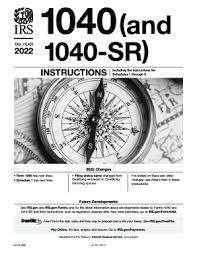The Difference Between Filing a 1040 and 1040SR: An Insightful Guide

Difference Between Filing a 1040 and 1040SR
An Insightful Guide to Differentiating Tax Forms for Taxpayers: 1040 vs. 1040-SR
TRAVERSE CITY, MI, US, April 10, 2024 /EINPresswire.com/ -- With tax season in full swing, taxpayers often face the dilemma of choosing the appropriate tax form for their filings.
Understanding the difference between filing a Form 1040 and Form 1040SR is essential for ensuring accurate and efficient tax submissions.
Key Highlights of the Difference Between Filing a 1040 and 1040SR:
Form 1040 Overview: Form 1040, also known as the U.S. Individual Income Tax Return, is the standard tax form used by taxpayers to report their annual income to the Internal Revenue Service (IRS). It accommodates various sources of income, deductions, and tax credits, making it suitable for most taxpayers, regardless of age or income level.
Introduction to Form 1040SR: Form 1040SR is a specialized tax form for taxpayers aged 65 and older. Introduced by the IRS as a simplified alternative to Form 1040, the 1040-SR aims to streamline the tax-filing process for seniors by providing larger fonts and spaces for easier readability and comprehension.
Key Differences: While both Form 1040 and Form 1040SR serve the purpose of reporting income and claiming deductions, there are notable distinctions between the two. Form 1040-SR includes specific lines tailored to senior taxpayers, such as additional lines for reporting retirement income and Social Security benefits, which may not be present on the standard Form 1040.
Eligibility Criteria: To qualify for filing Form 1040SR, taxpayers must meet the age requirement of 65 or older at the end of the tax year. Additionally, individuals filing jointly can use Form 1040SR if either spouse meets the age criterion.
Simplified Filing: Form 1040SR offers a simplified filing experience for seniors, providing clarity and convenience in reporting their income and deductions. Its user-friendly design aims to alleviate the complexities associated with tax preparation for older taxpayers.
As taxpayers consider their options for filing taxes, understanding the distinction between Form 1040 and Form 1040SR is essential. Seeking guidance from tax professionals can provide valuable insights and ensure compliance with IRS regulations.
For more information about the Difference Between Filing a 1040 and 1040SR and other tax-related inquiries, visit https://nationaltaxreports.com/what-is-the-difference-between-filing-a-1040-and-1040sr/
Frank Ellis
Harbor Financial
email us here
Legal Disclaimer:
EIN Presswire provides this news content "as is" without warranty of any kind. We do not accept any responsibility or liability for the accuracy, content, images, videos, licenses, completeness, legality, or reliability of the information contained in this article. If you have any complaints or copyright issues related to this article, kindly contact the author above.
